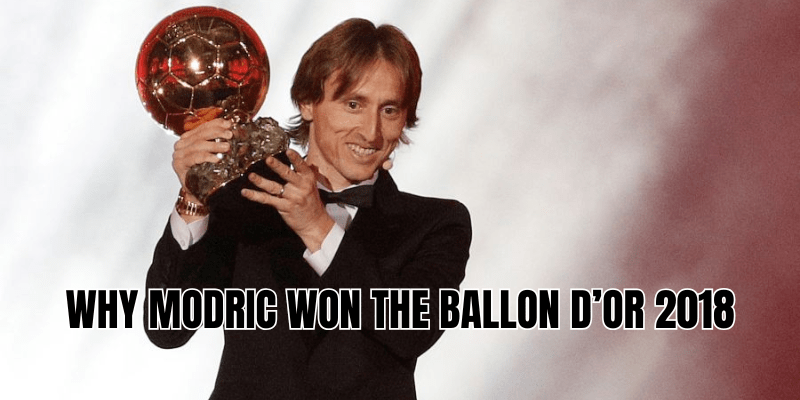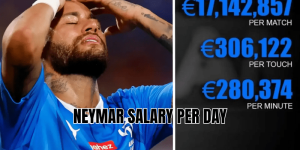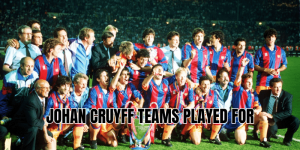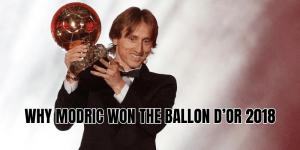The night Luka Modrić lifted the Ballon d’Or in December 2018 felt like a breath of fresh air in a world captured by the Messi-Ronaldo duopoly. That moment marked not just a personal triumph, but a symbolic breaking of a decade-long mold. Why Modric won the Ballon d’Or is a question with many layers: club success, international heroics, masterful influence, and the story of a midfielder’s subtle genius. In this article, DaoKick will take you through every facet that turned Modrić’s 2018 into history.
The Ballon d’Or Landscape Before 2018
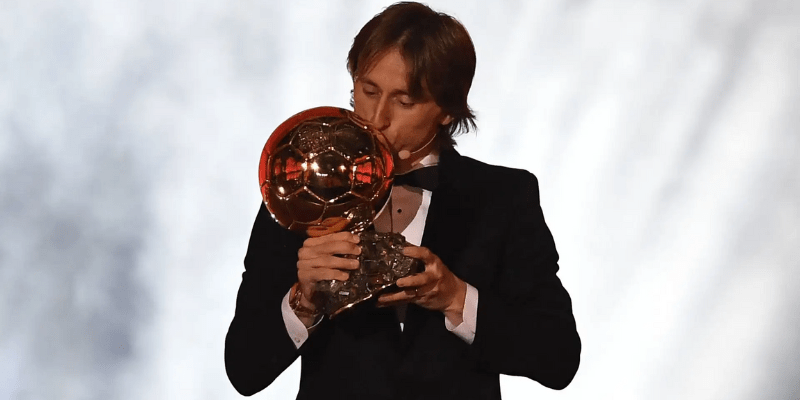
For ten years prior, the Ballon d’Or had been synonymous with Lionel Messi and Cristiano Ronaldo., those two shared all the trophies—five each. That dominance shaped public expectations: goals, assists, record-breaking numbers. In that era, attacking flair often trumped midfield work. Yet, by 2018, several voices in the football world began to argue that the criteria should evolve, to reward influence, leadership, consistency, and performance across all competitions—not just goal tallies.
So when Modrić emerged as the winner, it was a subtle shift in football values:, his win was a statement: that a midfielder, with the right season, can take football’s most coveted individual prize.
The Twin Pillars: Real Madrid & Croatia in 2018
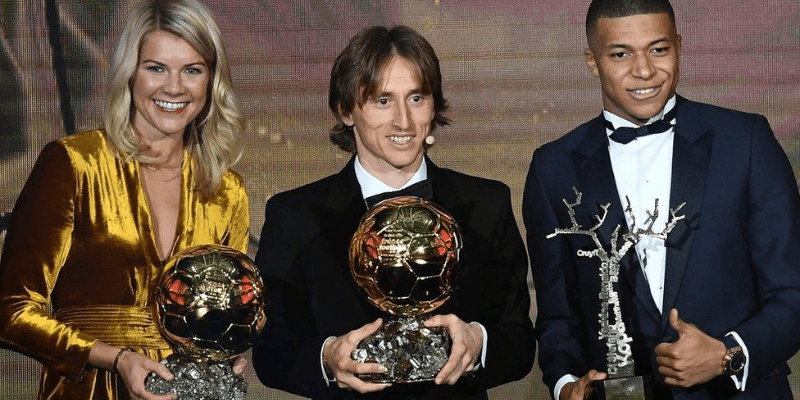
What makes a Ballon d’Or winner? Usually, success at club level and on the international stage. In 2018, Modrić delivered on both:
Real Madrid: The Champions League King
- Modrić was a key figure in Real Madrid’s third consecutive UEFA Champions League title. His presence in midfield helped balance attack and defense, dictate tempo, press when needed, and supply key passes.
- He was named in the UEFA Champions League Team of the Season and received distinction as one of the best midfielders for that campaign.
- His club success also included contributions in other tournaments, maintaining consistency through a grueling European season.
Croatia: The World Cup Golden Ball
- In 2018, Croatia went on a historic run to reach their first ever World Cup final. Modrić captained the side.
- His performances were so defining that FIFA awarded him the Golden Ball (best player of the tournament).
- He delivered across multiple stages: group matches, knockout battles, scoring, controlling games, rescuing Croatia with clutch performances.
By combining Champions League glory and World Cup brilliance, Modrić bridged club and country—a rare feat. These dual pillars gave him weight in the Ballon d’Or debate.
Influence, Leadership, and Mastery
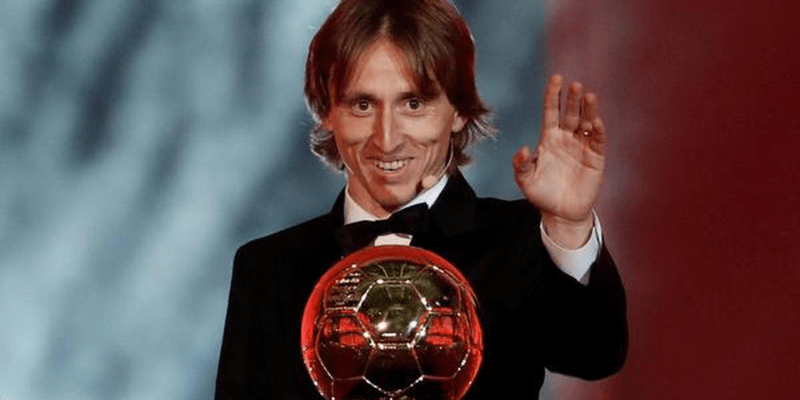
Beyond trophies, Modrić won votes through intangibles few others could match. Let’s break down how his midfield mastery contributed:
Game Control & Tactical Intelligence
He wasn’t a box-to-box runner focused on flashy runs or blistering pace—but a deep orchestrator. He controlled transitions, broke lines with passes, shielded defense, and served as the connective tissue between all units on the pitch.
Consistency Over Flashes
Unlike some attack-minded contenders, Modrić might not score 30 goals—but he never had off days. His consistency across La Liga, UEFA fixtures, and international matches made him a safe pick for jurors who valued reliability across seasons.
Leadership and Mental Strength
As captain and figurehead, he carried Croatia’s hopes under pressure. His leadership was not only symbolic but tactical: inspiring teammates, organizing midfield, calibrating the game’s rhythm under stress.
Breaking the Narrative
In many analyses post-2018, commentators pointed out that Modrić’s win was as much about narrative as merit. He was viewed as the right person at the right time—someone whose style transcended pure numbers and offered a model for what modern midfield greatness can look like. Many argued France Football needed to show that the Ballon d’Or could reward more than goals and headlines.
Statistical Snapshot: Comparisons and Key Numbers
Let’s compare how Modrić stacked up (in relative terms) against his rivals:
| Metric / Arena | Modrić’s Contribution | Rival Benchmarks |
| Ballon d’Or points total (2018) | Won with 753 points | Cristiano Ronaldo got 476 points. |
| Champions League titles | His 3rd in a row with Real Madrid | Some rivals had titles but lacked the double impact. |
| World Cup influence | Golden Ball, captaincy, consistent performances | Most rivals were eliminated earlier or didn’t shine as brightly on that stage. |
| Club vs. country balance | Strong in both realms | Many players shone in one but faltered in the other. |
In statistical breakdowns, Modrić’s numbers for passes completed, progressive passes, ball recoveries, interceptions, and defensive contributions stood out. While attackers had flashier goal and assist tallies, Modrić’s all-round metrics were exceptional for his midfield role.
Criticism & Counterarguments
No Ballon d’Or decision is without debate—and Modrić’s win had critics:
- Some believed Lionel Messi or other attackers (e.g. Griezmann) had better goal/assist records and more directly decisive matches.
- Others viewed Modrić’s influence as “intangible” and argued that the award should favor more visible metrics.
- A few even claimed political or institutional influence behind voting patterns.
Yet defenders countered: the Ballon d’Or isn’t just a scoring award—it’s for the “best player.” And when evaluating impact, leadership, and cross-competition success, Modrić’s resume that year was arguably unmatched.
Legacy of His Ballon d’Or Victory
The impact of his win has reverberated over time:
- He ended the decade-long Messi–Ronaldo stranglehold.
- He elevated the status of world-class midfielders in individual award debates.
- He became Croatia’s first Ballon d’Or winner and an emblem for players.
- His win signaled that awards could reward all-round brilliance, not just attacking output.
Even years later, Modrić’s win is often cited when critics ask whether midfielders can ever compete for the Ballon d’Or again. The precedent is there.
Conclusion
Why Modric won the Ballon d’Or lies in the alchemy of success: dominant at club level, heroic on the world stage, and consistent with understated mastery in midfield. He challenged the long-held bias toward flash and statistics—and won in a way that felt earned, resonant, and overdue.
If you’ve enjoyed dissecting this pivotal moment in football history with DaoKick, why not explore more? Dive into profiles of other Ballon d’Or winners, read match breakdowns where Modrić was a driving force, or follow transfer updates for clubs and stars. And next time someone asks you why Modric won the Ballon d’Or, you’ll be ready—not with opinions, but with evidence.
